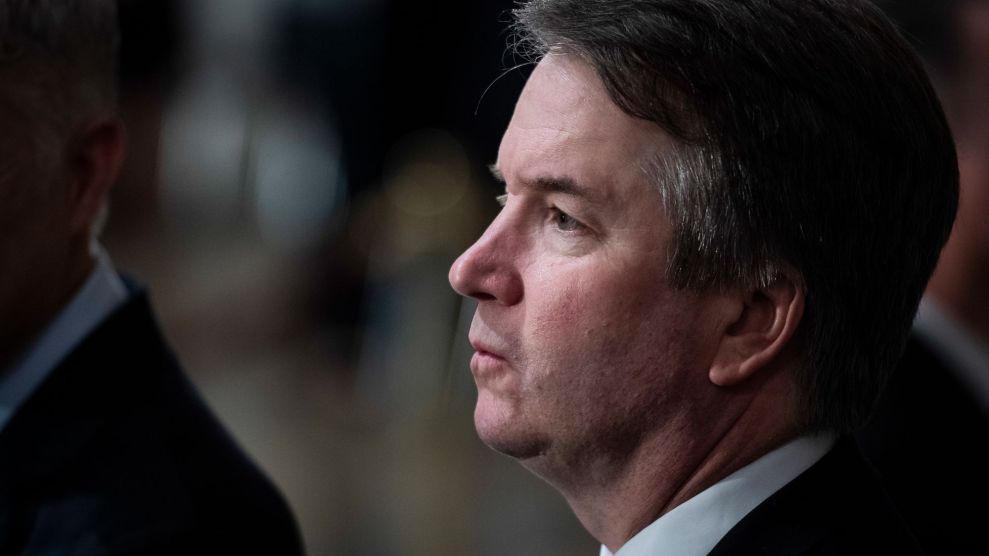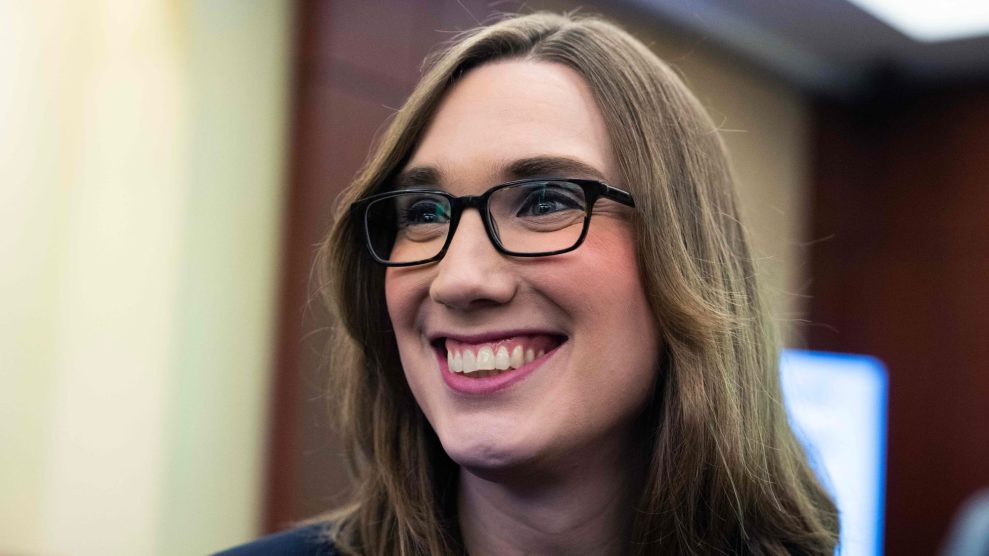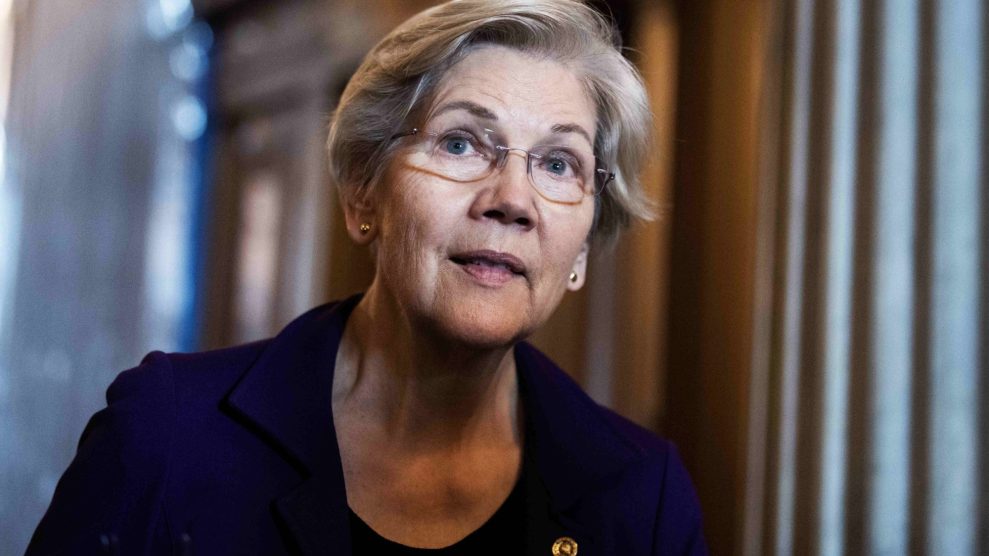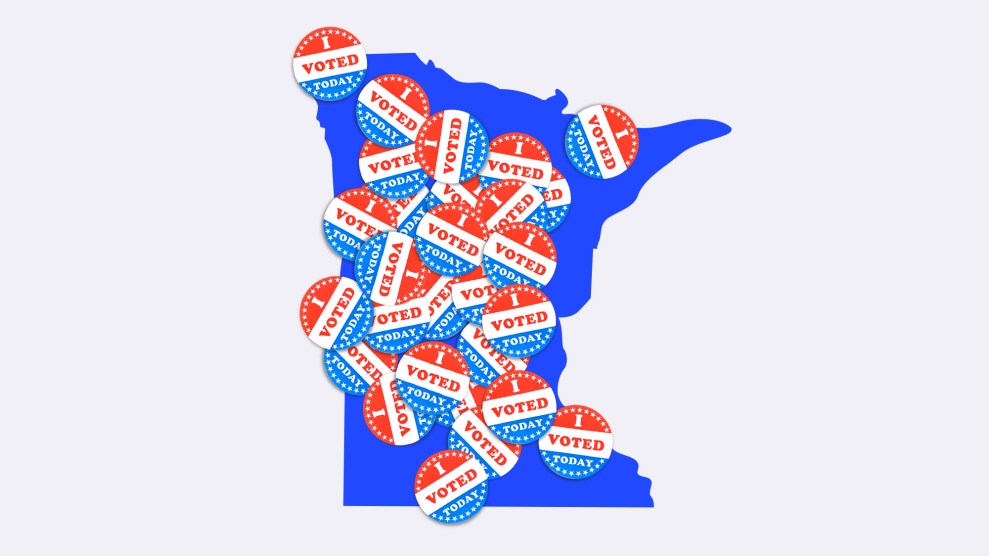
Supreme Court Associate Justice Brett M. Kavanaugh. Jabin Botsford/AP
In a 5–4 vote, the Supreme Court on Monday halted a lower court ruling that had required Alabama to redraw a gerrymandered congressional map. The move signals the new conservative majority’s willingness to eviscerate one of the last remaining components of the Voting Rights Act: the provision that bars the use of racial gerrymanders to dilute the voting power of Black Americans. The order functionally guarantees that in 2022, Black residents of the state will be able to elect their preferred candidate in only one out of seven congressional districts, despite making up 27 percent of the state’s population.
In January, a panel of three federal judges blocked a congressional map drawn by the Alabama Legislature, which folded most of the state’s Black voters into a single, creatively shaped district. The panel, which included two Trump appointees, ordered that the map be redrawn to include an additional district “in which Black voters either comprise a voting-age majority or something quite close to it.”
Instead of rushing to draw up a new map, Alabama officials filed a petition asking the Supreme Court to stay the lower court’s decision on the grounds that it would cause a “massive disruption” to the state’s elections. Yesterday, the Court agreed to issue a stay, practically reinstating the discriminatory maps and ensuring that they will be used in the upcoming congressional election.
The order was so extreme that Chief Justice John Roberts—one of the main architects of the long campaign against voting rights by the court’s conservative justices—joined the liberals in voting against it. In his dissent, Roberts argued that the court should have taken up the case but that there was no reason to stay the lower court’s ruling in advance of the 2022 elections, writing that the three-judge panel had properly applied existing law “with no apparent errors for our correction.”
In a concurring opinion, Justice Brett Kavanaugh, who joined the conservative majority to impose the stay, justified the order by arguing that changing election procedures close to the deadline would be hard on “candidates, political parties, and voters.”
“Late judicial tinkering with election laws can lead to disruption and to unanticipated and unfair consequences,” he wrote.
Yesterday’s order was a quintessential example of what law professor William Baude has deemed the “shadow docket,” a range of orders and decisions handed down with little explanation or advance notice. The shadow docket allows the Supreme Court to functionally change the law without having to justify its reasoning, before a case has been fully briefed and argued.
In a furious dissent joined by fellow liberals Stephen Breyer and Sonia Sotomayor, Justice Elena Kagan attacked the conservative majority for using its shadow docket to alter the law “in a disconcertingly long line of cases.”
The court’s order “does a disservice to Black Alabamians who under that precedent have had their electoral power diminished—in violation of a law this Court once knew to buttress all of American democracy,” she wrote.

















